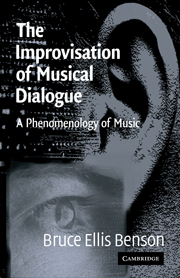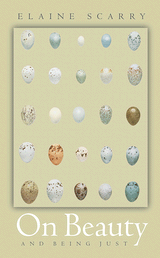
How do we steward the gift of music? And whose gift is it?
Consider this quotation from the conclusion of
Bruce Ellis Benson’s dense and brilliant phenomenological look at how we make music. After positing improvisation as a better,more accurate way of thinking about the dialogue between composer, performer, audience, and tradition, he writes:
"While the fact that performance is essentially improvisatory . . . might seem to free the performer from restrictions, it actually does precisely the opposite. For it means that the performer has a tremendous responsibility, one that is far greater and more complex than one conceived in terms of simple transmission or reproduction or “fidelity.” The performer, just like the translator, is essentially the inheritor of a gift—something bequeathed, unearned, and unowned. As gift it is something over which the performer does not have mastery or control. Moreover, it is no merely the piece of music that is bequeathed but, rather, the whole tradition to which that piece belongs and in which the performer and listener
merely take part. Of course the same is true for the composer: if composition can be described as a kind of improvisation on the work of other composers—indeed the entire tradition—then composers are likewise inheritors of a gift (and that in addition to the gift we would see as the ability to compose). Thus, we have a responsibility to this gift that has been given to us. It is not ours in the sense of belonging to us or having been founded by us or being something that we can treat as we please. Rather, we are stewards of that with which we have been entrusted." (187)



